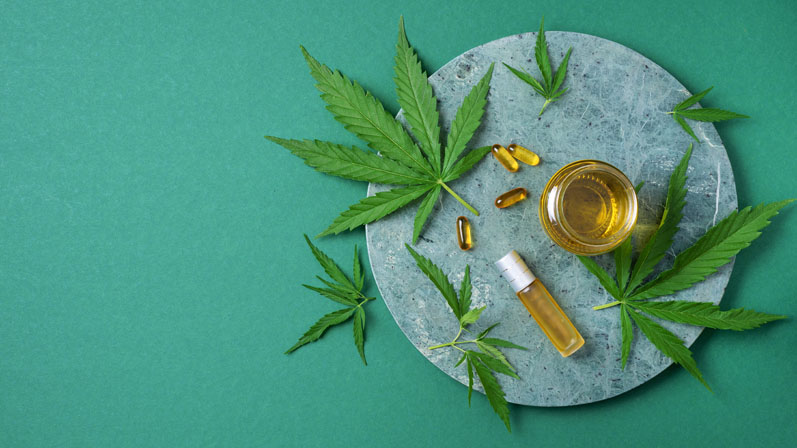The full benefits of cannabis are truly only being studied now. The breadth of research is astounding—who knows where it will go?
As more countries legalise cannabis, and it becomes more obvious the sky isn’t falling, CBD is becoming more widely accepted as a valid medical treatment. As a result, more studies are being carried out into areas of study where previously only anecdotal reports existed.
This is presenting huge areas of study, more pathways for scientists to follow, unearthing some fascinating insights, and also destroying some urban myths.
Epilepsy and Cannabis
The benefits of cannabis for epilepsy are already known. However, it’s only really effective in Dravet or Lennox-Gastaut syndrome, and hard to treat epilepsy sufferers generally do not find any benefit in CBD oil Nz as a treatment.
However, a Monash study run in Australia and New Zealand has found that a cannabidiol transdermal gel is effective in treating some treatment-resistant focal epilepsy. The use of CBD patches was found to be safe, with little to no side effects, and resulted in a 50% reduction in seizures after six months of use.
CBD and THC Dose Regulation and Ratios
While this may not be super exciting, it’s very important. Too small a dose, and it’s not therapeutic. Too strong a dose and there’s side effects. The same for ratio of CBD oil and THC; is one harmful while one therapeutic, or does there need to be a mix for the remedy to be effective?
With more legislation, dosages, methods of administration, and THC/ CBD ratios are being increasingly measured, controlled, and studied. This is making treatment far more effective, targeted, and safe. Standards are being set which gives doctors more confidence in prescribing cannabis as a therapeutic agent, and strategies for dosing and titration are allowing more certainty in treatment.
There’s also research into growth and harvest times of cannabinoids, which can help create higher density of flowers, yield, and active ingredients. There’s even new smart LED lights that can help growers create shorter seasons, increase or decrease terpene profiles, and reduce electricity use too, decreasing the carbon footprint of CBD cultivation.
Cannabis and Autism Spectrum Disorder
The rates of autism diagnosis are increasing as society becomes more aware of the symptoms and developing more sensitive screening tools. Alongside this, there is increasing demand for treatments to better manage the symptoms. Currently, some medications have unpleasant side effects such as aggression and anxiety or are not effective.
There are studies into medicinal cannabis as a treatment for ASD, with some encouraging results. A meta study showed 61% to 93% of subjects showing some benefit from the treatment, and up to 80% of people reporting a reduction in other medication use. There are reports of success in treating the core symptoms of ASD such as disruptive behaviour, as well as comorbid symptoms like sleep problems, irritability, and aggression. Social communication in particular, showed improvements in clinical assessments and parent reports.
Endometriosis and Medicinal Cannabis
Endometriosis is a crippling disorder with no real treatment. Surgical intervention can remove endometrial build-up, but it simply returns as there are no therapies to stop the growth. The only solution is removal of the uterus, a costly and drastic surgery which greatly impacts the life of those who get the surgery. The burden of disease is high.
There are many who report positive outcomes using cannabis for management of endometriosis. There also is a corresponding drop in these users from taking other forms of pain relief such as opioids, as well as a drop in hormone therapies, antidepressants, antianxiety medications, and antineuropathics.
While this drop in pain is well documented, there are studies beginning to focus on the role of the endocannabinoid system in the creation of the endometriosis lesions. The perfect treatment for endometriosis would be to eliminate the lesion, prevent any more from occurring, ensuring fertility and pain-free periods. It is possible that cannabinoids may help in some form with some of this complex disease, potentially somehow being implicated in the lesion development. This research is only in the theoretical stage, but managing this disease at the cause rather than treating symptoms could be life changing for huge numbers of sufferers.
Migraines and CBD
A meta study of 12 publications, studying almost 2000 people across the USA and Italy, has found promising evidence that medicinal cannabis can help migraine sufferers. They found that, on average, cannabis reduced the number of migraines per month from 10.4 to 4.6. That’s 50% more effective than non-cannabis treatments. There was also less nausea and vomiting, and evidence that cannabis reduces the duration of the attack.
Why is it showing to be so effective? It’s thought that migraines could be as a result of the endocannabinoid system being deficient in some way. The science has a long way to go, but it’s looking promising.
CBD for Menopause
A small new study has shown that women experiencing perimenopause or post menopause symptoms are taking cannabis in order to relieve the symptoms. In particular, anecdotal reports show success in treating mood and anxiety related issues, as well as alleviating sleep disturbances.
Currently, the hormonal treatments associated with menopause are inadequate as they have significant unpleasant side effects and increased risk of cancer.
This was a small study, limited to a group of white, middle-class women in the USA, but the results could be promising.
From Left Field: Bladder Function
A large new study has linked marijuana use to over-active bladders, and nocturia (night waking for urination). What does this mean? We don’t really know. There’s a link between the bladder and cannabis—is cannabis the diuretic of the future?
Can I Take Cannabis for These Illnesses in NZ?
Give us a call at The Pain Clinic. We can chat to you about the cannabis options available, and assess if you could benefit from CBD or THC as a treatment.

